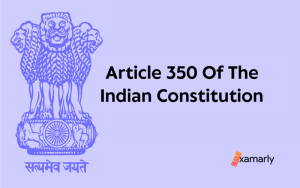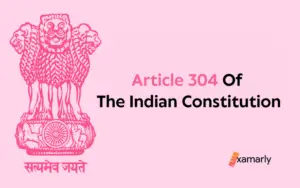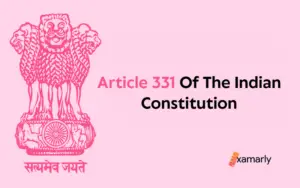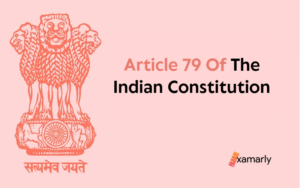Aparna Ramesh IAS claimed that she decided to balance both because she didn’t see any benefit in abandoning her work in order to study for the exam. She made the choice to plan her performance and keep her attention on the subjects she had studied.
It is not always easy or seems a good idea to prepare for any exam on a daily basis with a full-time job.
In the case of UPSC CSE, it seems impossible or sometimes foolish to take a decision like this. The civil services examination is such a huge exam that demands strategy, planning, intelligence, patience, hard work, and of course focus.
Focus is something that keeps you on track, as it is so tough to remain active and motivated throughout the harsh journey of the IAS exam. UPSC demands time for proper planning and managing it with a job demands a high level of patience and management.
However, there are various candidates who crack this huge exam being in a full-time Government job or any sort of private job.
Aparna Ramesh IAS successfully cracked the code and became a rank holder with AIR-35 in the UPSC CSE 2020. Working as an Architect Cum Urban planner, there is no strict routine and civil service exam preparation requires consistent efforts. Hence, the 35th Rank on the 2nd try is a fantastic accomplishment.
Here, in this article, we are going to learn more about Aparna’s journey, strategies, and recommendations.
- Family and Educational Background of Aparna Ramesh
- Aparna Ramesh IAS: Job and Life Before UPSC
- Her Journey to Civil Services Exam with a Full-Time Job
- Key Points Of Aparna Ramesh's Journey
- Why Aparna did UPSC CSE after B.ARCH?
- Balancing her Full-Time Job and Studies
- Anthropology as Optional
- Final Round: The Interview
- A Versatile Personality
- Aparna’s UPSC CSE Preparation Strategy
- Aparna’s Recommendation on the Decision of Alternative Career Options
- Other IAS Officers who Cleared UPSC besides having a Full-Time Career
- How Examarly Will Help You
- Conclusion
- FAQs about Aparna Ramesh IAS
Family and Educational Background of Aparna Ramesh
The following points talk about her family and academic background:
- Her father is a civil servant which led to her living and studying in ten different Indian cities.
- Having learned new languages and about different cultures, she is more adept at dealing with new challenges.
- Dr. Gurushree Ramesh, the mother of Aparna, is a Ph.D. English Language Teacher.
- She graduated from Visvesvaraya National Institute of Technology, Nagpur.
- Aparna earned her master’s degree at CEPT University in Ahmedabad.
- She interned in Urban Planning, at the Deutsche Gesellschaft für Internationale Zusammenarbeit GmbH, Germany.
- She pursued her fellowship with GoI’s (Government of India’s) Smart City Mission, under the Ministry of Housing and Urban Affairs.
Aparna Ramesh IAS: Job and Life Before UPSC
Aparna Ramesh IAS was living a good life before her selection to UPSC. She was born in Chennai and has lived in ten different cities across seven Indian states.
She changed many cities during her childhood because of her father’s job due to which she experienced many cultures and made friends with people from various cultural and linguistic backgrounds.
Her father served as a Civil Servant in the Indian Revenue Service (Customs and Indirect Taxes). Her mother has a doctorate in English Language Teaching. She attributes her accomplishment to her parents and praises their support.
In 2015, Aparna graduated in Architecture from Visvesvaraya National Institute of Technology, Nagpur. She has a Post Graduate degree in Urban Planning from CEPT University in Ahmedabad, which she finished in 2019.
She was always a bright student and received many awards including the Berkeley Undergraduate Prize for Architectural Design Excellence in 2014. She is a two times recipient of the Wipro Earthian Prize for 2017 and 2018.
While working as an Urban Planner she came across various problems related to cities and urban planning. Her job gave her the exposure to many IAS officers like Municipal Commissioners, Officers of the Ministry of Housing and Urban Affair, and CEOs of Smart Cities.
This exposure helped her build the spark to reach at a position of authority and do something related to infrastructure issues, and the betterment of the people and cities.
You Might Also Like To Read: UPSC Full Form.
Her Journey to Civil Services Exam with a Full-Time Job
During an interview, she quoted that since she had limited time, her strategy was to focus on preparation. Hence she studied only those components which were relevant for the exam.
Aparna decided during her preparatory period to study from 4 a.m. to 7 a.m. every day before beginning her professional career, following which she worked the entire day. She used to study for at least 8 to 10 hours on her weekly off.
She liked her current job and enjoyed the whole process of preparation for UPSC CSE along with the full-time job.
Aparna Ramesh IAS says “I didn’t see any point in quitting my job to prepare for the exam, so I decided to balance both. It was my decision to strategize my performance and focus on the subjects I have studied”.
She didn’t let herself get distracted or left unprepared by limited learning material. She quotes, “My goal was to get the basics clear and then revise as much as possible instead of reading as many books as possible or mentioning more study material”.
Also Read:
Key Points Of Aparna Ramesh’s Journey
- Gave the first attempt during her Post Graduation.
- In 2020, she cracked the UPSC CSE on her second attempt.
- She chose Anthropology as an optional for UPSC.
- Aparna strategized her study along with her full-time job. She studied for 3-4 hours in the morning hours before going to work and utilized her weekends to the fullest.
- She covered the entire syllabus from NCERT when she was in college itself. This gave her a lead in her preparation.
- She analyzed her mistakes by solving a number of mock tests before UPSC which helped her a lot in qualifying for the second attempt of the IAS exam.
- She stayed up to date with current affairs and made notes each day.
You Might Also Like To Read: Time Management For UPSC Preparation.
Why Aparna did UPSC CSE after B.ARCH?
As to why an architect might want to join the civil service, Aparna said:-
“While pursuing the Urban planning degree, I got the chance to interact with many IAS officers like Municipal Commissioners, Smart City CEOs, people from the Ministry of Housing and Urban Affairs, etc. All of them were working for something I was passionate about, such as the city, infrastructure issues, etc. That inspired me to use my knowledge as a civil servant. My father has been a civil servant, too.”
Balancing her Full-Time Job and Studies
She strategized both things really well and planned in such a way that she never felt burdened while also enjoying the journey of India’s toughest exam.
Anthropology as Optional
Aparna Ramesh IAS chose Anthropology as she was interested in studying different cultural backgrounds, human societies, and their development.
Related Articles:
Final Round: The Interview
Many mock interviews were attended by her to experience & efficiently handle difficult situations at the time of the interview so as to improve her performance.
A Versatile Personality
As the daughter of a Civil Servant, she has resided in ten different cities across seven states. Her native language is Kannada, but she also speaks Hindi, English, Tamil, Telugu, Marathi, and Gujarati fluently.
Outside of work, she likes to write about issues in society and has won several awards. As her hobby, she likes to read books, do yoga, and explore new places & cities. Her objective is to make rural India smart and child-friendly by employing her expertise in architecture and creativity as a civil servant.
You Might Also Like To Read:
Aparna’s UPSC CSE Preparation Strategy
- She feels that focusing on the Prelims is the trickiest section of all the different phases of UPSC CSE. Aspirants can easily prepare and clear the Prelims section using a variety of question patterns. Analyzing question papers from previous years, the type of questions, and in which way the question traps an aspirant is the most important part.
- She prepared previous year question papers from 2010 onwards and analyzed every section of it.
- She had a collection of anecdotes, quotes, and fascinating facts to incorporate into her essay. Aparna Ramesh used a template to answer the essay paper.
- She stresses tailoring the notes. Tailoring is very important for answer writing in the UPSC Mains exam. By tailoring, she means that everything you write in your notebook should be used in a proper way in your actual examination also.
- UPSC CSE Notes should be concise, clear, and structured i.e. notes should have coherence to the syllabus of UPSC CSE.
- For the UPSC Interview round, she attended a lot of mock interviews for a better understanding of the whole interview process by the officials.
Related Article: Digital vs. Handwritten Notes For UPSC.
Aparna’s Recommendation on the Decision of Alternative Career Options
Aparna says that being in a job or having an alternative career options for a UPSC aspirant is very important. She believes that everyone has a unique set of parameters in their lives and their own preferences.
Some people may feel distressed while preparing for any examination along with a full-time job.
She feels that jobs in areas like Public policy, Sustainability, and energy or any sort of job that deals with the public domain or have an opportunity in which you can directly connect with the general public or their problems surely benefits an aspirant in wholesome ways.
Having a different perspective on diversity is something that is needed in a civil servant.
Completing a fellowship like India Smart Cities Mission, Ministry of Housing and Urban Affairs under the Government of India, and having a job as an Architect and Urban planner is a boon in itself.
She also focuses on jobs of different niches like Data Scientists, Engineers, planners, and developers that have some sort of public dealing because these things will shape you in a long run for a service like UPSC.
Therefore, having an alternative career according to Aparna can be the best option to sustain while preparing for UPSC CSE-like examinations.
The only thing an aspirant needs is to plan, focus on important things that are aligned with the syllabus of UPSC CSE, have some patience, and be calm throughout the journey.
Related Article: Career Options For UPSC Aspirants.
Other IAS Officers who Cleared UPSC besides having a Full-Time Career
There are several examples of IAS officers who cleared the UPSC Civil Services Examination (CSE) while working full-time. Here are a few of them:
- Tina Dabi: She topped the UPSC CSE in 2015 while working as an assistant manager at the Indian Oil Corporation Limited.
- Roman Saini: He cleared the UPSC CSE in 2013 while working as a doctor in Delhi.
- Saurabh Jain: He cleared the UPSC CSE in 2016 while working as an engineer in a private company.
- Varun Jha: He cleared the UPSC CSE in 2018 while working as a software engineer in a private company.
These examples demonstrate that it is possible to clear the UPSC CSE while working full-time, but it requires strong motivation, disciplined preparation, and effective time management. It is not an easy feat, but with determination and hard work, it can be achieved.
Related Article: Famous IAS Officers List.
How Examarly Will Help You
With Examarly, your UPSC Preparation will be at full fledge even with your full-time job. It not only provides you with your own customized micro plan but also analyses your performance and enables you to maintain your benchmark so that you can balance your work and preparation together.
Conclusion
This article explores the factors that led to the success of Aparna Ramesh, an Indian IAS topper. And also her journey from her full-time career to a UPSC Exam. Aparna Ramesh IAS attributes her success, hard work, focus and dedication to her parents. By understanding the factors that led to the success of this IAS topper, you can learn and achieve a great rank just like her.
You Might Also Like To Read: Does Job Experience Matter In UPSC.
FAQs about Aparna Ramesh IAS
How did Aparna Ramesh manage clearing UPSC while working full-time?
Preparing for the UPSC CSE while being employed full-time takes its toll on both physical & mental health. It becomes a tough journey and completing it successfully requires an even tougher will & dedication. She was focused on her end goal & kept advancing towards it one step at a time, which helped her ace the examination.
What does Aparna Ramesh recommend about having other career options for UPSC aspirants?
Aparna believes it’s important to have a support/backup for aspirants preparing for the UPSC CSE. This gives them safety over others who don’t have a support plan. However, this adds to the toughness of the UPSC exam and demands a higher level of dedication which only selective people can afford to give.
What are the key interpersonal skills required to ace the UPSC CSE?
Learning from Aparna Ramesh’s journey, we can conclude that with a strong focus, will, dedication & the willingness to work hard, any aspirant can clear the UPSC CSE.
How can I prepare for UPSC CSE?
Preparation for UPSC CSE requires a well-structured approach and dedication. Some recommended steps include:
1) Understanding the syllabus and exam pattern
2) Staying updated with current affairs and general knowledge
3) Reading standard reference books
4) Practicing mock tests and previous year question papers
5) Time management and regular self-assessment.
6) Having gradual daily progress on the syllabus & learning.
What is the selection process for UPSC CSE?
The selection process for UPSC CSE involves two stages: the preliminary examination and the main examination. The candidates who qualify the preliminary examination are eligible to appear for the main examination. The final selection is based on the marks obtained in the main examination, as well as a personality test (interview).






